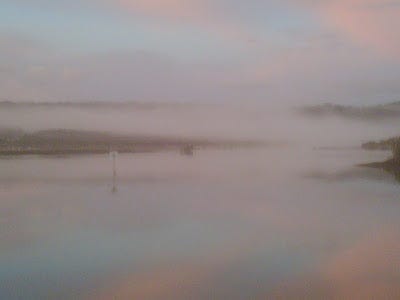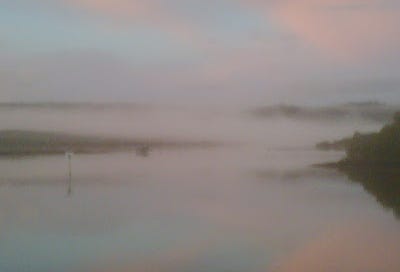*
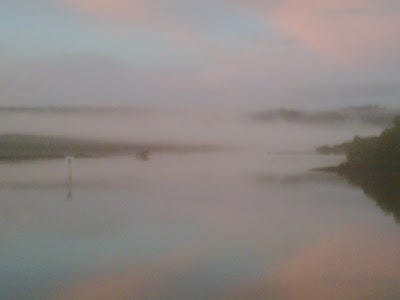
It goes a little something like this
In my shoes my toes are busted,
My kitchen says my bread is molded,
I got a good job at the dollar store,
One foot in the hole, one foot gettin' deeper,
with a broken mirror and a blown out speaker
And I ain't got much else to lose.
I'm faded, flat busted;
I've been jaded I've been dusted.
I know that I've seen better days.
One foot in the hole, one foot gettin' deeper,
Crank it to eleven, blow another speaker and
I ain't got, I ain't got much to loose
'Cause
(Chorus)
I've seen better days I've been star of many plays
I've seen better days and the bottom drops out.
I've seen better days I've been star of many plays
I've seen better days and the bottom drops out.
Now My cup's filled up with five buck wine
I find myself here all the time
Another rip in the glass another chip in my tooth
Rained on I've been stained on
Found another goat I tried to put the blame on
And now I'm steppin on all the cracks
So I guess there ain't no use
'Cause
(Chorus)
I've seen better days I've been star of many plays
I've seen better days and the bottom drops out.
I've seen better days I've been star of many plays
I've seen better days and the bottom drops out.
Woman: "Do you like my gucci bag?"
That's beautiful, beautiful
Check it check it check it out,
I'm bent like glass second hand like glory,
Missed the bus but I'm in no hurry,
Molasses fast no business born,
One foot in the hole, one foot getting deeper,
Crank it to eleven, blow another speaker and
I aint got i aint got much to lose
'Cause
(Chorus)
I've seen better days I've been star of many plays
I've seen better days and the bottom drops out.
I've seen better days I've been star of many plays
I've seen better days,
I've seen better days,
I know that i've seen better days,
(the bottom drops out)
I've been the star, of so many plays,
(and the bottom drops out)
Walked on the edge with that hobo way.
(the bottom drops out)
'Cause I know I know that I've seen better days
(and the bottom drops out)
Now I'm real thirsty...
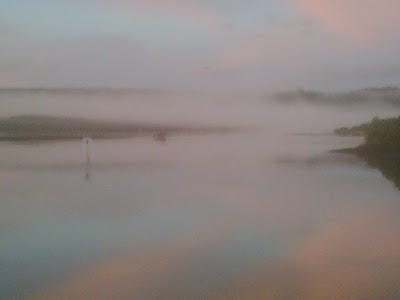
In every faded bar, in every glance of young blood, in the dark passes for which we were so blessed, in the Commonwealth of nations and the glances at handsome young men, at the envied lives of others, young, fresh, optimistic, happy, healthy, they were everywhere, coating the street, taunting him. The city is no longer yours. Nothing belongs to you anymore. You are the centre of nothing, a wastrel on the edges of space, caught in the gaps between reality and unreality, between fantasy and truth, everything gone, his stomach in turmoil, his heart full of lost loves and dreadful reproach, for everything had gone wrong, everything, and now was not the time to do anything but endure. He waited for his lift. He heard the passing minutes creaking in the walls. He faded in and out of consciousness but knew that all was not well, in his sickly spirit, in his sweaty flesh, in the depression that cloaked his every thought, every move.
So it was that he looked up from the gutter and envied everyone who passed, the lives of others, fabulous, self confident, comfortable in their daily routines. He looked up and couldn't see anything but other people going about their duties with and air of self-confidence he could never display, not now, not since he took the wrong turn so many years ago and lay now, dying, in the park so close to where he used to work. We stood at the turning point, the therapeutic phrase went, and he could remember it clearly, that turning point, the last turning point of so many, before he took the dive and became nothing but another of the city's derelicts. You know why you write so well about those people, Malcolm Brown at the Herald had said, because you're half-way there yourself. And so it was that haunting phrases passed in and out of his consciousness, and when he talked to the Mission Beat worker, he said curious things that made him wonder: who was this guy?
But he had seen it all before, crossing back and forth across the great divide, tears flowing down their faces as they scuttled off into their hiding places with bottles of cheap plonk, everything has failed. "I never wanted it," the woman said, with astonishing clarity. "I never wanted it." He knew exactly of what she spoke. There were days he didn't know whether he wanted it either, the normal life, the comfortable routines, comfortable inside his own skin, comfortable in the company of others. He had felt so at odds, A Mood Apart, as the book is called, that he had been comfortable with the idea of always feeling different, of never fitting in, of being out of sorts with the world at large. You're the saddest person I've ever seen, what is it, someone commented, and it was just another phrase in a string of humiliations, make way, wide load, that emphasised time and again: he wasn't the person he used to be.
It wasn't the same anymore, and age sat badly on all of them. There could be no way forward. There could be nothing that would make a different. I've dropped. You will die. I don't want to go to detox baby, no, no, no. And the sweat poured out of him unceremoniously, because he couldn't get enough booze inside him to keep the demons at bay, he couldn't stop the withdrawals of decades taking over his soul, he couldn't shatter his way into wakefulness, or pass through the thin divide into normal consciousness. He couldn't say: hey, I'm happy now. He couldn't march his way through the quagmire, or ask for blessings, or be renounced. He couldn't say hello, how are you, and smile in a welcoming way. He couldn't be a proud person proud of his achievements, proud of his children, proud of his station in life. He could see the spikes of grass close up. He could feel the dribble coming out of his mouth. He could smell the taste of vomit and he could see blood on his hands, although he didn't know whether it was his or someone elses.
Nobody in the world wants to know me when I drink, nobody, he heard the kid say, and he welcomed the way forward and he talked in circles about everything that had happened. It was hard. It was desperately hard. He didn't know why he had had to make things so damn difficult, but he had. And so he bought grace and tiny moments of time, tiny slivers when he was the person he once was and he could see clearly his own position, there, prostrate in the park, dirty, smelly, sick, broken. They nodded patronisingly when he told them he used to be a journalist, he used to be a real person, and they smiled at the fantasies these old codgers could come up with; and he could see the high flickering light on the top of the sky scrapers, calling him, calling him, it's time to leave this place, it's time to leave this body, it's time to leave this plane. Have a better go next time, if there is a next time, if this isn't the end of the cycle. You will never remember the ruin you made of this one. You will start again; and destroy another life all over again with self indulgence and despair. And so he lifted his head up out of the grass, wiped the spittle out of his mouth, brushed the dust from his eyes and looked up: take me now, he whispered, take me now.
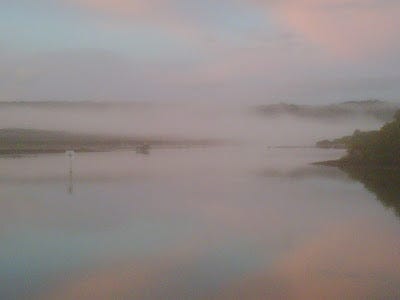
THE BIGGER STORY:
http://www.abc.net.au/news/stories/2009/08/14/2655546.htm?section=justin
Efforts to recover the bodies of the 13 people who died in a plane crash near the Kokoda Track are due to resume this morning, after bad weather stalled the recovery process yesterday.
An Australian helicopter was unable to winch a group of victim identification specialists from the Australian Federal Police into the crash site yesterday.
Nine Australians were among the 13 people killed when a small chartered plane crashed en route to Kokoda from Port Moresby on Tuesday.
PNG's civil aviation authority says the remains of three people have been removed from the wreckage, and they remain at the crash site.
It is hoped that the construction of a temporary helipad near the crash site will speed up the recovery and investigation process today.
Foreign Affairs Minister Stephen Smith said yesterday the identification and recovery process will be complicated.
"We will continue to be ... in close and regular contact with the families, as we do everything that we can to make this very difficult time for them as smooth as is humanly possible," he said.
"They are now forced to wait some time before their loved ones are returned to them."
http://www.canberratimes.com.au/news/national/national/general/climate-ripe-for-an-early-election/1595853.aspx
Australians have moved a step closer to an early federal election after the Senate yesterday rejected Bills to set up an emissions trading scheme.
As expected, the Opposition, Greens, Family First senator Steve Fielding and Independent senator Nick Xenophon scuttled the legislation described as ''very difficult and contentious'' by Prime Minister Kevin Rudd.
The Federal Government will re-introduce the Bills in three months' time and will be forced to negotiate with their political opponents or the crossbenchers to pass the legislation. If the Senate rejects the Bills a second time, MrRudd will be handed the trigger to call an early election fought on the environment.
Yesterday, Mr Rudd blasted the Opposition for voting against the Bills to set up an emissions trading scheme centrepiece of the plan to tackle climate change.
''They are absolutely demonstrating themselves as being prisoners of the past, prisoners of their own internal party disunity,'' Mr Rudd said.
''The Liberal Party prisoners of the past on climate change, prisoners of their own party disunity on climate change are therefore placing the nation's future at risk. Rather than marking this day as one when the nation actually grasped its future, those opposite have chosen instead to consign Australia to the past.''
Opposition Leader Malcolm Turnbull said they had put forward some ''very constructive suggestions'' to make the scheme ''greener, cheaper and smarter''.
But these were dismissed by Climate Change Minister Penny Wong, whose refusal to negotiate displayed ''pedantic bloody-mindedness [and] stubbornness''.
The Opposition would develop amendments in the coming months. But Opposition Senate leader Nick Minchin warned it would be ''reckless and irresponsible'' to pass the legislation before the outcomes of global climate talks in Copenhagen in December and negotiations on the US Bill.
http://www.abc.net.au/news/stories/2009/08/14/2655529.htm?section=justin
The UN Security Council has approved a watered-down statement about the continued detention of Burma's democracy campaigner Aung San Suu Kyi.
The council has unanimously agreed to express its "serious concern" about the conviction and sentencing of Aung San Suu Kyi.
But an earlier draft statement had called for the "condemnation" of her treatment.
UN Security Council president John Sawers tried to explain why the statement has been toned down.
"I think we all know that different members of the Security Council have different views on the situation there [and] elsewhere," he said.
The statement also does not specifically call for the release of Aung San Suu Kyi.
